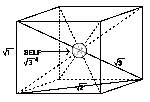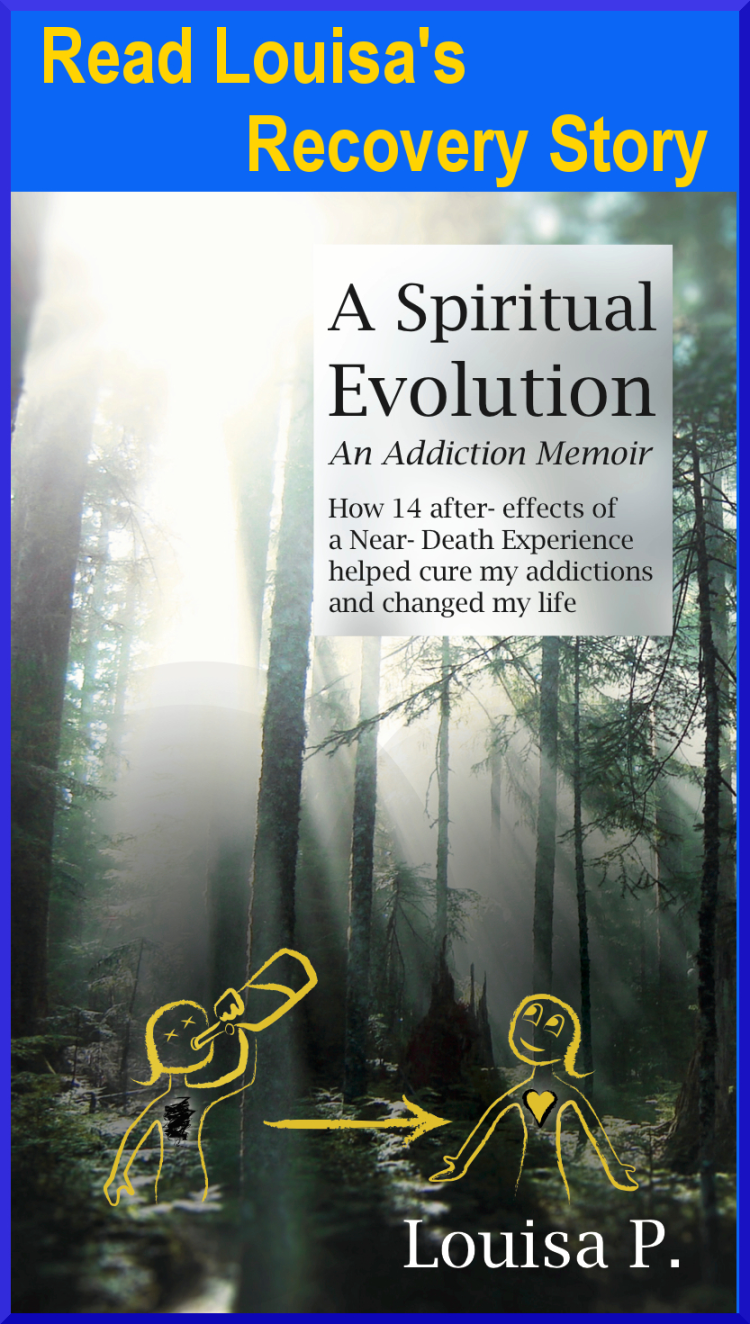So here we are, hopeless alcoholics, and we find out we can’t stay sober without god’s help. Dammit. Next, we learn we need to work the Twelve Steps to remove all the clutter blocking us from god, which entails a lot of time and work. Bummer.
But it gets even worse! Service? Usefulness? These are scary words for the self-centered. The Big Book is kind of crafty in not laying too much on us at the outset. In chapter 1 Bill W. describes being “catapulted into the 4th dimension of existence,” where we will know “happiness, peace, and usefulness, in a way of life that is incredibly more wonderful as time passes.”
in not laying too much on us at the outset. In chapter 1 Bill W. describes being “catapulted into the 4th dimension of existence,” where we will know “happiness, peace, and usefulness, in a way of life that is incredibly more wonderful as time passes.”
Happiness. Yep, that’s on our spiritual shopping list! Peace. Definitely want us some o’ that! But usefulness? What’s so wonderful about that? Hmm. Apparently, we begin to sense, it’s essential to getting the previous two. Chapter 2 tells us, “Our very lives, as ex-problem drinkers, depend on our constant thought of others and how we may help meet their needs.” Yuck! we think. Constant thought? I don’t even like others! Still, if our sole alternative is misery, we move forward.
Solution-based meetings urge newcomers onto a bunny slope of usefulness via a service position –  making coffee, answering phones, helping with set-up or tear-down. Reluctant as I was to take on one of these, I found that, strangely enough, during my duties I experienced a sense of ease and comfort I’d never known before without being drunk. I didn’t get why, but I knew I liked it (and still do). Same thing when I started sponsoring other women. I remember marveling each time I closed my front door at the end of the hour, how was it that “getting out of self” felt so damn good? How had those all-consuming morasses of my own problems dehydrated to little flecks of scum in just sixty minutes? What was this lightness, this joy that let me turn back to my own life with love and gratitude? I didn’t understand it.
making coffee, answering phones, helping with set-up or tear-down. Reluctant as I was to take on one of these, I found that, strangely enough, during my duties I experienced a sense of ease and comfort I’d never known before without being drunk. I didn’t get why, but I knew I liked it (and still do). Same thing when I started sponsoring other women. I remember marveling each time I closed my front door at the end of the hour, how was it that “getting out of self” felt so damn good? How had those all-consuming morasses of my own problems dehydrated to little flecks of scum in just sixty minutes? What was this lightness, this joy that let me turn back to my own life with love and gratitude? I didn’t understand it.
Now I do.
What flows through us when we’re helping others is the energy of god – no less. We become that “channel” the Saint Francis prayer opens with, and, as the power of compassion, the desire to help, and the love that asks for nothing streams through us, we ourselves are replenished and healed. Beyond AA, almost any spiritual tradition worth its salt tells us helping others is essential to a meaningful life; Christianity and Buddhism are two that come to mind. My own view of god as the collaborative power behind life works even better.
It’s as if the nutrients our spirit needs to flourish can materialize only in circulation, in flow from and to. The ego, walling us in, promotes stagnation. By contrast, whenever I pray to feel god’s love for me, the prayer is answered in my flow of love for you. All this makes sense. But what it’s taken me years to abandon is that mistaken notion of service I developed early on – that we do X in order to get Y.
I remember the moment when my Al-Anon sponsor pointed out this disturbing passage embedded in step 9: “At the moment we are trying to put our lives in order. But this is not an end in itself. Our real purpose is to fit ourselves to be of maximum service to God and the people about us.” What? Not an end in itself? A smile came over her face, probably in response to the look of puzzlement/ horror on mine. She said, “So many of us put the cart before the horse. We don’t help others so god will fix up our lives. No. God fixes up our lives so that we can help others.”
So… what starts off as a quest for relief gradually morphs into a reason for being. My body exists in order to let me move about in the world, and the more I use it, the more it thrives. My spirit exists to express love, and the same principle holds. To love each other is why we’re here. Period. The purpose of life, right there, Charlie Brown.
A few quick addenda:
- Martyrdom is selfishly oriented, though easy to mistake for service. When I give help based on a preconceived notion of how someone should view/ respond to it, I’m not channeling god. I’m manipulating. I may want their fucking gratitude, or for them to live in a certain way to reinforce my rightness. Love, by contrast, is open-minded, freeing each person to find their own relationship to god.
2) Judging others is kryptonite to the part of you that loves. “Many of us sense that real tolerance for other people’s shortcomings and viewpoints and a respect for their opinions are attitudes that make us more useful to others” (19). Love does not “should” on anyone.
3) Love is not enabling. “It is not the matter of giving that is in question, but how and when to give. The minute… the alcoholic commences to rely upon our assistance rather than upon God,” we’re both screwed (98).
Today a lot of my service work outside sponsorship involves just answering my phone. This week alone I’ve gotten three alcoholic HELP! calls. I don’t try to solve anyone’s problems. Instead, I listen and love – and whatever comes out my mouth comes out. They can take it or leave it.
The most difficult of these calls I ever took came from an acquaintance crying almost too hard to speak. She’d fallen in mutual love with someone she shouldn’t have, and though extremely aware of the moral stakes involved – why she was sobbing uncontrollably – she insisted this love was, for her, non-negotiable. They hid nothing, but everyone had turned away from her. She was in a living hell, losing her mind from all this pain! I’d been weeding when she called, and I remember praying by my flowerbed to be both honest and useful to her. My own feelings about such romances, having suffered the butt end of one, are intense. So much churned inside me – old hurts, judgments, pronouncements! – but compassion won out. Pain, I told her bluntly, was the inevitable price for breaking her own morals and causing someone else even more pain. There was no way out. But that said, I did have a lot of experience with living sober through pain, and I shared what had helped me most. She was avidly grateful – more, I think, for my clemency than the suggestions themselves.
It’s a far cry from making coffee! And I can’t say I felt joy when I hung up, either. Rather, what I felt was a deeper acknowledgment of the difficulties of being  human and compassion for all of us – including myself – who struggle with them. Bad weeds, bad loves! There’s an element of arbitrariness in all our designations. I appreciated my own life not as an individual effort but as inextricable from my culture, which was in turn part of the larger unfolding of life – all of us trying to find our way. To feel connected with all things is the most profound form of peace, and for the next few hours – still pulling weeds but now a little more merciful – I had it.
human and compassion for all of us – including myself – who struggle with them. Bad weeds, bad loves! There’s an element of arbitrariness in all our designations. I appreciated my own life not as an individual effort but as inextricable from my culture, which was in turn part of the larger unfolding of life – all of us trying to find our way. To feel connected with all things is the most profound form of peace, and for the next few hours – still pulling weeds but now a little more merciful – I had it.
Alcoholic or normie, we can’t help but be motivated by the rewards of service. Today, though, I view them more as a chicken/egg phenomenon. Being happily sober, we can be lovingly useful, which keeps us happily sober.




I can really relate to the line “The ego, walling us in, promotes stagnation.” That’s happening right now for me! Sitting at my computer when I had intended to be working on my house, I’m resisting judging my behavior as good or bad (but my resistance is weak). Speaking of judging, I also liked the line about not “shoulding” on people. But I scratched my head when I read about your acquaintance falling in love “with someone she shouldn’t have.” Was that your judgement, or hers?
LikeLike
Definitely hers from the get-go, but I agreed. It was a pretty major “shouldn’t,” at least in our culture.
LikeLike
My partner and I stumbled over here different web address and thought
I should check things out. I like what I see so i am just following you.
Look forward to checking out your web page for
a second time.
LikeLike